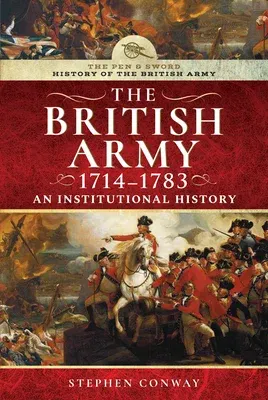Much has been written about the British army's campaigns during the many
wars it fought in the eighteenth century, but for over 150 years no one
has attempted to produce a history of the army as an institution during
this period. That is why Stephen Conway's perceptive and detailed study
is so timely and important. Taking into account the latest scholarship,
he considers the army's legal status, political control and
administration, its system of recruitment, the relationships between
officers and men, and the social and economic as well as constitutional
interactions of the army with British and other societies.
Throughout the book a key theme is order and control. How did a small
number of officers exercise authority over large numbers of common
soldiers? Traditionally the answer has focused on the role of a
draconian system of corporal and capital punishment - by extensive use
of the lash and the rope. Yet no institution can function through fear
alone and he shows that the obedience of its common soldiers had to be
negotiated by their officers who were very aware of their men's sense of
their entitlements, and their conception of military service as
contractual.
By uncovering the mental world of both officers and common soldiers,
Stephen Conway offers a very different view of how the British army
operated between the Hanoverian succession and the end of the War of
American Independence. His work will be fascinating reading for all
students of British military history.

